On Air Now
The Indie Night with Sophie Sveinsson 7pm - 11pm
1 February 2024, 14:56 | Updated: 1 February 2024, 16:22
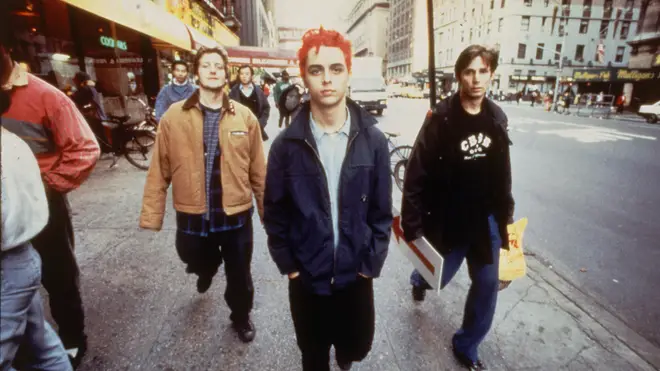
It's been three decades since the pop-punk trio issued their breakthrough album. Find out more about the stories behind the songs.
Released in the US on 1st February 1994, Green Day's third studio album Dookie marked their breakthrough into the mainstream. The trio of Billie Joe Armstrong, Tré Cool and Mike Dirnt made the jump from indie to major label and became a fixture on MTV and festival line-ups from that point on.
Matching melodic punk with edgy, relatable lyrics about teenage angst, boredom, and disillusionment, Dookie was a key album of the 90s. Here are some of the stories and inspirations behind the songs, and how Green Day became one of the biggest bands in the world.
Green Day's first two albums - 39/Smooth and Kerplunk - were released on the independent label Lookout, but in the summer of 1993 they signed with Reprise, a subsidiary of Warner Brothers. This move to a major label wasn't unheard of in the punk community, but it meant that the band were no longer welcome at 924 Gilman, the West Berkeley venue that had played host to Green Day, The Offspring, Rancid and many more. Green Day last played the club on 6th September 1993 under the pseudonym Blair Hess before the ban came into effect. However, despite this, members approved a benefit show in May 2015.

Green day live @ 924 Gilman Street, Berkeley 17/05/2015 3 CAM MIX
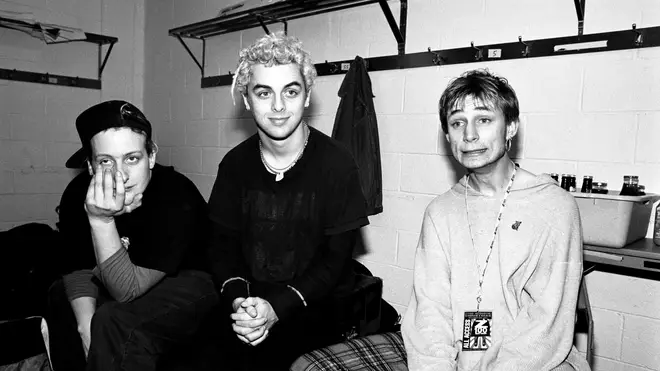
"We wanted to make a record in the style of an independent $500 recording and then use a big budget to get bigger sounds," Armstrong told VH1 in 2002. He reportedly laid down most of his vocals in a single take over the course of two days, but the mixing was a little less straightforward. The frontman went on: "The first time we mixed we didn't even want to use any reverb. We just wanted it to sound really dry, the same way the Sex Pistols record or the early Black Sabbath records sounded. But the first time we mixed it, it sounded like sh*t!"

Green Day - Basket Case [Official Music Video]
"Do you have the time, to listen to me whine?" This couplet opens one of Green Day's biggest songs, a blast of frenetic punk that hides a serious message. "Basket Case was about anxiety attacks and feeling like you're ready to go crazy," Billie Joe told VH-1 in 2002. "At times I probably was. I've suffered from panic disorders my entire life. I thought I was just losing my mind. The only way I could know what the hell was going on was to write a song about it. It was only years later that I figured out I had a panic disorder."
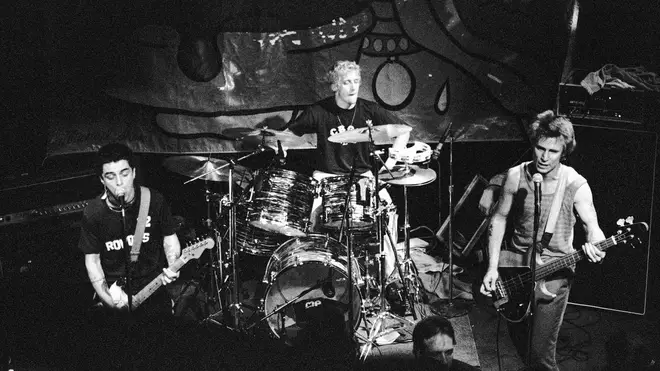
One of Green Day's most famous tracks was originally written in 1993 about Billie Joe Armstrong's then-girlfriend Amanda, who apparently moved to Ecuador. However, when the musician played the song for the other members and producer Rob Cavallo, they thought the bittwersweet ballad wasn't in fitting with the power punk sound of Dookie and was shelved until it appeared as the b-side of Brain Stew in 1996. The track was later re-recorded and included on the 1997 album Nimord, where it became one of the band's biggest hits.
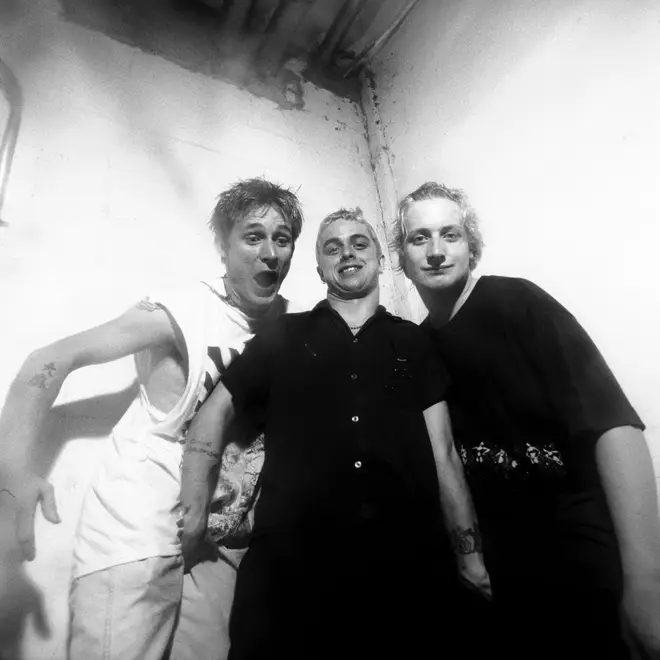
The band freely admitted the name of the album was a "stoner joke", but one that was based on their experiences on the road. Armstrong told VH-1 in 2002: "We were on tour, and you eat bad food all the time. You just end up getting the sh*ts basically. So we started calling it liquid Dookie. Like, 'How did it go in the bathroom?' 'Oh, liquid, man, liquid.' I always thought it was like a real childhood saying, reminiscent of being little kids or something."

Green Day's Billie Joe Armstrong on honesty in songwriting
In January 2024, Billie Joe Armstrong told Radio X's Chris Moyles about the little details that go into the recording of Green Day's albums: "I remember when we did Dookie, I wanted each track to go really quickly right into the next. I didn't want to have much room in between.
"That kind of came from Mötley Crüe's first album, Too Fast For Love, where each song just is like: boom, boom, boom. There's never a dull moment."

All By Myself (Hidden Track) Green Day
After the final track, F.O.D., has finished, if you wait a couple of mi utes, you'll get to hear All By Myself, written by drummer Tré Cool. "I was thinking of you," sings Tré, "Oh yeah did I mention, I was all by myself?" Draw your own conclusions.

Green Day - Longview [Official Music Video]
The lyrics to this song are less ambigious: "When masturbation's lost its fun, you're f**kin' lazy." However, the song is more about boredom in the suburbs, particularl the Rodeo area of Berkeley, where Billie Joe Armstrong was holed up for a time. "I was in-between houses sleeping on people's couches," he told VH-1 in 2002. "It's a song about trying not to feel pathetic and lonely. I didn't think that masturbation was really seen from the point of view that I was looking at it. In songs like Turning Japanese, it always seemed more about people pulling a pud or something. I was coming from a lonely guy's perspective: No girlfriend, no life, complete loser."
He explained to Guitar World in 2002: "I guess it was just living in the suburbs in a sort of sh*t town where you can’t even pull in a good radio station. I was living in Rodeo, California, about 20 minutes outside of Oakland. There was nothing to do there, and it was a real boring place."
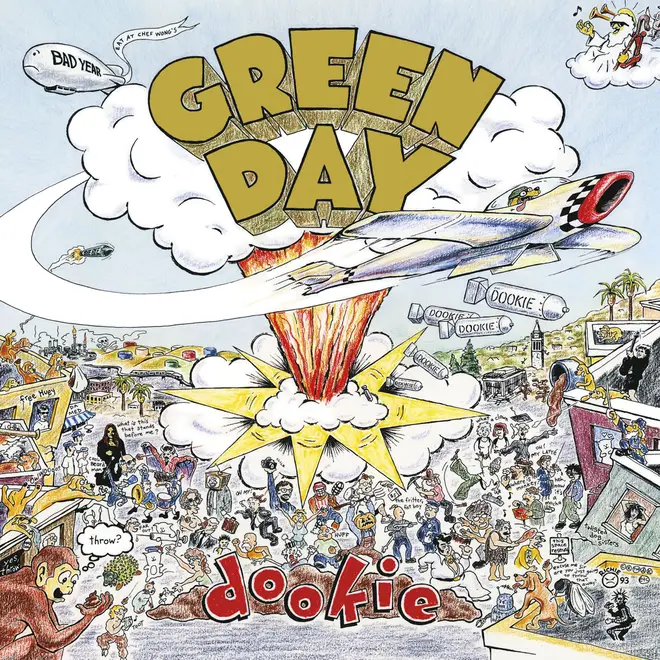
The sleeve to Dookie was created by Bay Area artist Richie Bucher and is a cartoon depicting Telegraph Avenue in Berkeley. Alongside stars like Angus Young of AC/DC, Patti Smith (as pictured on the cover of her album Easter) and the woman who features on the sleeve of Black Sabbath's 1970 debut album are some less familiar figures. Armstrong told Rolling Stone in 2014: "There’s a lot of hometown stuff. There was a guy who used to jog around – he’s in there. There was a photographer at 924 Gilman Street. He’s in there." The phrase "Twisted Dog Sisters" refers to a pair of girls from the area, and the figure saying "The fritter, fat boy" is apparently based on a local cop.

Green Day - Coming Clean [Visualizer]
In a 1995 interview with The Advocate, the frontman stated: “I think I’ve always been bisexual. I mean, it’s something that I’ve always been interested in. I think everybody kind of fantasizes about the same sex. I’ve never really had a relationship with another man. But it is something that comes up as a struggle in me. It especially came up when I was about 16 or 17. In high school people think you have to be so macho. People get attacked just because someone insinuates something about their sexuality. I think that’s gruesome.”
On the 20th anniverary of Dookie's release, Armstrong expanded on the song's meaning to Rolling Stone. "It was a song about questioning myself. There are these other feelings you may have about the same sex, the opposite sex, especially being in Berkeley and San Francisco then. People are acting out what they’re feeling: gay, bisexual, transgender, whatever. And that opens up something in society that becomes more acceptable."